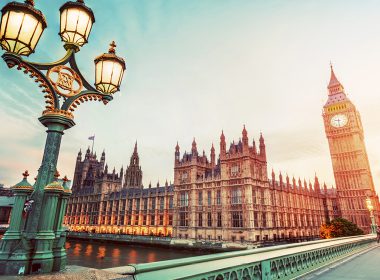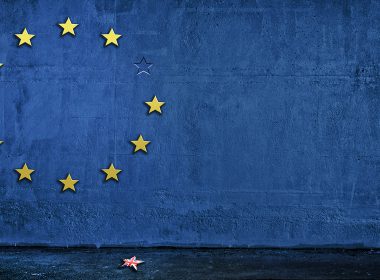Snapshot
- On 27 January this year, the UK Supreme Court affirmed the High Court’s decision that Parliamentary consent was needed to give notice of withdrawal from the EU under Article 50. The Court also held that the consent of Scotland, Wales and Northern Ireland to the UK’s withdrawal from the EU was not required under law.
- Since the announcement mid-January that the UK government will not seek continued EU single market membership, an Australian-UK trade agreement remains a live prospect.
- The proposed Australia-EU trade agreement is likely to be launched in the second half of 2017. The Australian government will have to sensitively manage the preliminary negotiations with the UK in order not to complicate the EU trade negotiations.
Since our last Brexit instalment (LSJ, August 2016, p70), there has been a UK court challenge concerning the way in which the Government gives effect to its obligations under Article 50 of the Treaty on European Union (‘TEU’); the question of whether the UK might remain in the internal market for goods, services and capital, but nothing else, has been answered; the question of Scottish independence has resurfaced, not that it ever truly went away, and the UK has begun courting other countries to discuss negotiating trade agreements once it leaves the EU.
In this instalment, we address these issues and introduce valuable insights from our colleague Dr Ben Wellings into the profiles of the ‘Leave’ voters that suggest different bases of support for the Leave vote beyond the dominant ‘left behind’ explanation that took hold in the wake of the Brexit referendum.
Judicial challenge to the UK Government
High Court
In October 2016, a number of claimants brought an action in the UK High Court against the Secretary of State for Exiting the European Union (representing the UK Government) challenging the Prime Minister’s claim that Article 50 could be triggered by the action of a single member of the Cabinet without the prior authorisation of the Parliament
and MPs (R (Miller) v The Secretary of State for Exiting the European Union [2016] EWHC 2768 (Admin)).
The face of the challenge was a businesswoman, Gina Miller. But there was another claimant, London-based Spanish hairdresser Mr Deir Tozetti Dos Santos, who together with interested parties – Mr Grahame Pigney, a UK citizen living in France who set up the People’s Challenge Group; AB, KK, PR and children acting on behalf of children whose right to residence in the UK
depends on their EU treaty rights; and Fair Deal for Expats, a group formed by British expats living in other EU states – was given leave to intervene.1 Other interested parties were the Independent Workers Union of Great Britain and a group of mostly non-UK EU nationals resident in the UK. The Lord Advocate of Scotland and the Counsel General of Wales were also represented but played no part in the proceedings.
The question for the Court was whether, as a matter of UK constitutional law, the Crown is entitled to use its prerogative powers, acting through the executive government of the day, to give notice under Article 50 (at [4]). It was common ground between the parties that the issue was a justiciable one; the Court was at pains (at [5]) to make clear that it was dealing with a pure question of law. Nothing in the ruling had any bearing on the merits or demerits of the UK’s withdrawal from the EU nor on government policy (at [5]).
The Court held in a joint judgment that as a matter of UK constitutional law it was necessary for the government to get the consent of parliament before issuing the notice to withdraw under Article 50. The Court analysed UK constitutional law and the constitutional background to the enactment of the European Communities Act 1972 (‘ECA’), which is the Act that gave effect to EC/EU law within the UK.
Interpreting that Act in light of its constitutional background, the Court concluded that Parliament had intended to legislate in such a way that the introduction of EU law into UK domestic law could not be undone by the exercise of Crown prerogative. Since the Crown has no prerogative power to effect a withdrawal from the Community Treaties under the ECA, it therefore has no power to effect a withdrawal from the Treaties by giving notice under Article 50 (at [92]).
Supreme Court
The UK Government appealed the decision of the High Court to the UK Supreme Court. The full Court, consisting of eleven judges, heard the appeal in early December 2016 and handed down judgment on 24 January 2017 (R (Miller) v Secretary of State for Exiting the European Union [2017] UKSC 5).2 The majority 3 (8–3) affirmed the High Court’s decision that Parliamentary consent was needed to give notice under Article 50.
The Supreme Court also dealt with the position of the UK’s devolved legislatures in Scotland, Wales and Northern Ireland (at [126]–[151]). The Court held that the consent of these legislatures to the UK’s withdrawal from the EU was not required under the Westminster legislation establishing these bodies; it also held that the informal constitutional rule that Westminster will not usually legislate in areas of devolved powers without devolved legislatures’ approval (the ‘Sewel Convention’) was not a legally binding rule (at [148 ]–[149]).4
Brexit means Brexit
In taking on the Prime Ministership in the immediate aftermath of the referendum, Theresa May repeatedly pronounced ‘Brexit means Brexit’ as she sought to allay the fears of those who had voted to leave that the UK may not actually end up leaving. Simultaneously, she was trying to appease those who voted to remain by trying to obtain some sort of agreement, even if only in principle, from the other EU Member States and the institutions that the UK could remain in the internal market with respect to the free movement of goods, services and capital, but not with respect to the free movement of persons.
Terminology quickly caught up and debates ensued about whether it would be a ‘hard’ Brexit (complete withdrawal, including from the internal market) or a ‘soft’ Brexit (withdrawing from all aspects of the EU except the internal market in goods, services and capital; some suggest that the term also implies a slower, more negotiated departure).5 Those with a clear understanding of EU law and politics, and of the broader EU project, knew this latter approach was never going to succeed. The EU Council, Commission and the other Member States were intractable on this point: leave means leaving everything, including the internal market.
After a valiant attempt to persuade the EU that a ‘soft’ Brexit was a viable course of action, Prime Minister May bowed to the inevitable and acknowledged that UK withdrawal from the EU means complete withdrawal from the internal market – there will be no ‘half-measures’ or ‘cherrypicking’ which obligations will be retained and which relinquished.
Brexit reframed
The initial diagnosis of the voting patterns following the Brexit referendum built upon analysis of support for the radical right in the United Kingdom (read England) by Robert Ford and Matthew Goodwin published in 2014. Their thesis suggested that those most likely to support Eurosceptic parties and policies were predominantly from the working class in the north of England; and that the vote was a protest vote by those who felt ‘left behind’ by the advances of economic integration represented by membership of the EU (Ford and Goodwin, 2014).
However, the Brexit referendum drew in a wider portion of the electorate than those who supported Eurosceptic parties at European and Westminster elections. Closer analysis of UKIP’s support base reveals a high representation among self-employed people, business owners and the professional and managerial classes.
Subsequent post-referendum research demonstrates that most people who voted to Leave, in terms of absolute numbers, lived in the south of England. As Hennig and Danny Dorling argue, ‘The outcome was frequently – and erroneously – blamed on the working class in the North of England. However, because of the differential turnout and the size of the denominator population, most people who voted to Leave – by absolute numbers – lived in the South of England’ (Hennig and Dorling, 2016).
In other words, the ‘Leave’ vote was at least as much about a nativist reaction to the EU and immigration in England, interpreted as the expression of a desire to regain a state identity as a ‘global’ trading nation by the UK government after the vote. This worldview accorded very well with a vision of a United Kingdom dominated by an England with a global rather than European role (Wellings, 2016).
According to the UKIP Manifesto of 2015, ‘Britain is not merely a European country but is part of a wider community, the Anglosphere. Beyond the EU and even the Commonwealth is a network of nations that share not merely our language but our common law, democratic traditions and global trading interests. From India to the United States, New Zealand to the Caribbean, UKIP would want to foster closer ties with the Anglosphere’.
Despite the so called Anglosphere being a ‘political science fiction’ created by Robert Conquest – the author of major works on the subject, the Anglosphere had a pret-à-porter appeal in the policy vacuum that opened after the Brexit referendum.
By linking their arguments with dominant English national narratives, the ‘Brexiteers’ presented a more positive narrative: Britain [aka England] was once great; the EU held it back; ‘independence’ will make Britain [England] great again (Wellings and Baxendale, 2015). For Brexiteers, the Anglosphere showed that there was – and is – an alternative to the EU. Whether the ‘Anglosphere’ – former colonies of Britain with mixed sentiments about that history – would want to engage as enthusiastically with UKIP or Britain is a separate question.
Implications for an FTA between Australia and the UK; and between Australia and the EU
Formally speaking, the UK cannot begin negotiating a trade agreement with Australia or any other country until the Article 50 procedure is complete and the UK is no longer a member of the EU. In the meantime however, the UK government has begun informal discussions with a number of countries, notably common law jurisdictions such as Australia, New Zealand and the United States.
Australia was the first country to announce it would enter discussions with the UK to create a free trade agreement once the UK had left the EU. In the first week of September, 2016, Australia’s Minister for Trade, Tourism and Investment, Steve Ciobo, and Britain’s Secretary of State for International Trade, Liam Fox met in London and announced the establishment of a bilateral trade working group. That same month, Malcolm Turnbull and Theresa May discussed a post-Brexit trade deal between Australia and the UK, when both were at the G20 summit in China. In December, the UK Minister of State for Trade Policy, Lord Price, visited Australia for the inaugural meeting of the Australia-UK Trade Working Group. This was the first occasion that a UK Minister had made a public address on Brexit since the referendum.
His Lordship reinforced the message of the UK Government that leaving the EU did not mean that the UK was becoming isolationist; rather, that it was looking to reinvigorate historical trading relationships across the globe, particularly with those countries with which the UK shares common values, a common heritage and common legal system.
The existing trading links between Australia and the UK are worth $23.2 billion (£13 billion)6 and both governments are committed to developing these ties even further. The subject of this first meeting was the early priorities for the Trade Working Group and the parameters of a more ambitious free trade agreement after the UK leaves the EU. According to a joint statement issued in November 2016, the Ministers also discussed cooperation on other trade policy issues of mutual interest, including the G20 and the OECD; and continuing negotiations around the WTO and separate processes.
Since the British announcement mid-January that the government will not seek continued EU single market membership, an Australian-UK trade agreement remains a live prospect. If the UK government had persisted with options such as maintaining the Common External Tariff, any possible trade agreement may have been prevented.
As we noted in our previous snapshot, the nature and scope of such an agreement will depend on the outcome of the UK’s exit negotiations with the EU and the terms on which they re-engage. The implications for Australia and Australian law firms and businesses in relation to both the UK and the EU, in concrete terms, are still unlikely to be known inside the next two years. However, as events unfold, it should become possible to develop a better sense of which issues are likely to be the more intractable ones in an Australia-UK and an Australia-EU FTA respectively.
The proposed Australia-EU trade agreement is likely to be launched in the second half of 2017. The Australian Government will have to sensitively manage the preliminary negotiations with the UK in order not to complicate the EU trade negotiations. Negotiations with the EU will almost certainly be delayed while the EU27 and the UK deal with Brexit.
Implications for Scotland
The May Government has attempted broad consultation with the Scots, Welsh and Northern Irish by instituting a joint ministerial committee on the Brexit issue7. It seems unlikely to mend the breach over the disparate EU membership intentions inside the United Kingdom.
Scotland voted overwhelmingly in the Brexit referendum of June 2016 to remain in the EU, with 62% in favour. The Scottish Government, and the First Minister in particular since then have emphasised the need to respect Scots’ democratic mandate in this vote and to protect Scotland’s national interests. This may result in the Scottish Government seeking a second referendum on Scottish independence.
The Scottish National Party (‘SNP’) will hold its annual conference on 17–18 March 2017 in Aberdeen and there are indications that the Scottish First Minister, Nicola Sturgeon, will announce a second referendum. The UK Government is liaising with the Scotland office and Scottish Conservative leader Ruth Davidson regarding this.
The Scottish Government would need the UK Government’s agreement to hold a second, legally binding referendum, but to block a second referendum would play into the hands of the SNP and appear that Scotland was being denied its democratic right. There is a precedent, with the ‘Edinburgh Agreement’ signed in 2012 by then Prime Minister David Cameron and then First Minister Alex Salmond, prior to the referendum on Scottish independence in 2014.
This issue represents an added complication in the Brexit negotiations for the UK Government. Views are mixed as to whether the UK Government would deny the Scottish Government’s request to hold a second referendum, whether the Scottish people want one, and how they would vote in ‘indyref2’. It has been suggested that Scotland need not have a period outside of the EU while applying for membership, if it gained independence from the UK prior to the latter’s withdrawal from the EU.
The position on this point is, however, unclear. The EU Treaties contain no provision for such a situation. In principle, it might be plausible that the other EU member states would agree to Scotland’s speedy entry to the EU but, as stated, the position is far from clear.
Conclusion
There is no area of policy that remains unaffected by the UK’s withdrawal from the EU – and this applies to the EU as well as to the UK. This is compounded by the fact that the UK presently has neither sufficient public servants nor depth of expertise to deal easily with the changes that must be made as withdrawal proceeds.
However the EU is facing similar challenges in terms of resources and addressing complex issues. Initially, various officials from the EU, notably the President of the EU Commission, Jean-Claude Juncker, were highly critical of these initial overtures between the UK and third countries and arguably with good reason. As a matter of EU law, until the UK leaves the EU, it does not have competence to negotiate trade deals with third countries. This is also the position as a matter of UK law which is why leaving the EU will also involve repealing the European Communities Act 1972.
In the meantime, the bill to trigger Article 50 must still pass through the House of Lords and, just when it seemed that all arguments for remaining in the EU had been exhausted, former Prime Minister Tony Blair has emerged to champion revisiting the decision to leave.8 Uncertainty seems to be the only certainty for the foreseeable future.
Anne McNaughton, Senior Lecturer & Adjunct, ANU Centre for European Studies; Annmarie Elijah, Associate Director, ANU Centre for European Studies; James Cameron, PhD candidate, ANU Politics & International Relations; Ben Wellings, Senior Lecturer & Deputy-Director, Monash European & EU Centre
Endnotes
- Owen Bowcott, ‘Who are the claimants in article 50 court case?’ The Guardian (Australian edition) online, 5 December 2016: www.theguardian.com/politics/2016/dec/05/who-are-the-claimants-in-article-50-court-case
- For a detailed analysis see: publiclaw foreveryone.com/2017/01/25/analysis-the-supreme-courts-judgment-in-miller
- Lord Neuberger, Lady Hale and Lords Mance, Kerr, Clarke, Wilson, Sumption and Hodge
- See further, Professor Steve Peers commentary: eulawanalysis.blogspot.com.au/2017/01/the-judgment-in-miller-representative.html
- Charlie Mitchell, ‘Brexit means Brexit. But will it be hard or soft?’ InFacts, 28.09.2016: https://infacts.org/brexit-means-brexit-will-hard-soft/
- See further: Joint Statement of Minister Ciobo and Lord Price, 30 November 2016; trademinister.gov.au/releases/Pages/default.aspx
- See especially T. May, ‘I want an exit that will work for all of us’, article in The Times Scotland, 19 January 2017, also available at www.gov.uk/government/speeches/i-want-an-exit-that-will-work-for-all-of-us-article-by-theresa-may
- www.bbc.com/news/uk-politics-38996179








